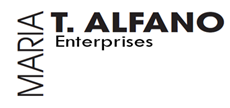
The cover letter accompanying the resume is in many ways as important if not more so than the resume. The reason is simple, this is the first impression that the HR manager or business owner will get of the prospective candidate and must entice them to read the resume. The cover letter must be tailored to the position applied for and should demonstrate some knowledge about the company and its business. Use the same type of language as was mentioned in the advertisement for the position and make sure that all the details is actual and correctly stated.
Focus on key aspects of your employment background and information that relates directly to the position advertised. Highlight any relevant experience and the reasons why this position is ideally suited for you. Address the letter to the person advertising the position. This information can be obtained through research or by a call to the company. Spelling the person’s name correctly is as important as ensuring that the name of the business is correctly added. Proofread or spell checks the document before sending it to the company.
The format of the resume is the next factor to consider. Use a good format in the resume and avoid using action verbs as much as possible. Avoid using vague terms such as “familiar with” or “experienced in” as it may cause the HR department to question the extend of your knowledge in the subject.
Using bullet points is highly effective being short and to the point. The purpose of the resume is to communicate your knowledge and abilities in a clear and concise way. The resume must be formatted chronologically as most employers prefer to read the work background in a reverse chronological order. Avoid grouping skills and job functions and stay with the traditional approach in writing a resume.
Tailor the content of the resume for each opportunity using the technique of highlighting any key achievements or relevant qualifications that may apply to the specific position. Again bullet points are an effective way to achieve this. Include as many terms from the advertised job description as possible in the resume. Some companies are now adopting the technique of scanning the resume for specific keywords electronically. By adopting applicable phases can increase the chances of the applicants being successful.
Refrain from including long unrelated lists of duties performed during your previous position. Add and include information and facts that is relevant for the specific position offered by the company.
The resume should never contain irrelevant data about the personal life of the applicant. Avoid describing hobbies or interest that has no bearing on the products or activities of the company offering the position. Include membership to professional associations that is pertinent to the position.
Never include an unprofessional e-mail address in a resume, rather open a new e-mail to be used in answering job advertisements and further communications with the company. Personal websites and Facebook pages should be designed to contain only work related activities and achievement and not images taken during the last holiday.
Most HR staff will expect you to provide references so this need not be included in the resume at this stage of the process.
Helping you understand what’s in your pocket…
Until next time

Let us know what you think